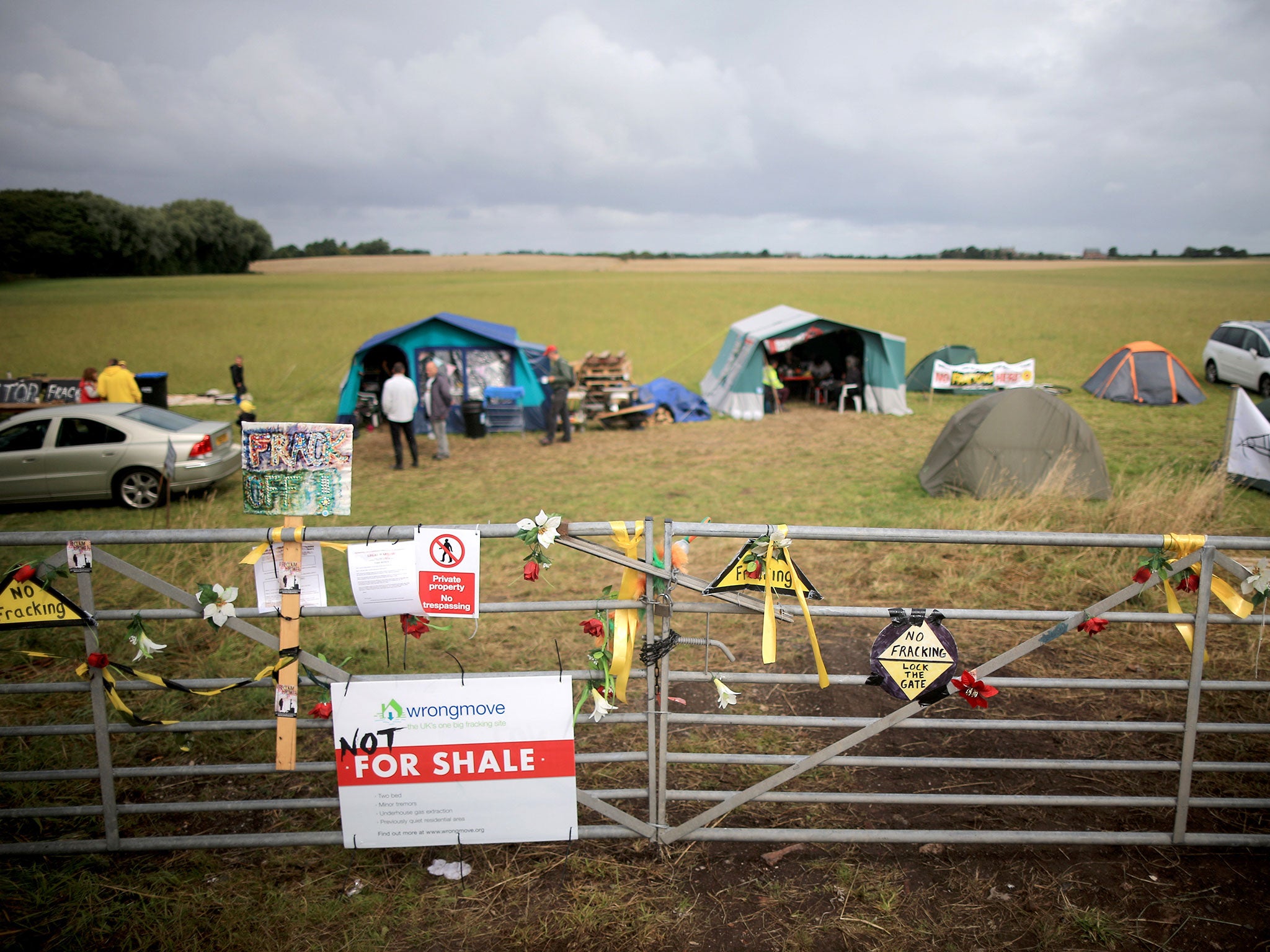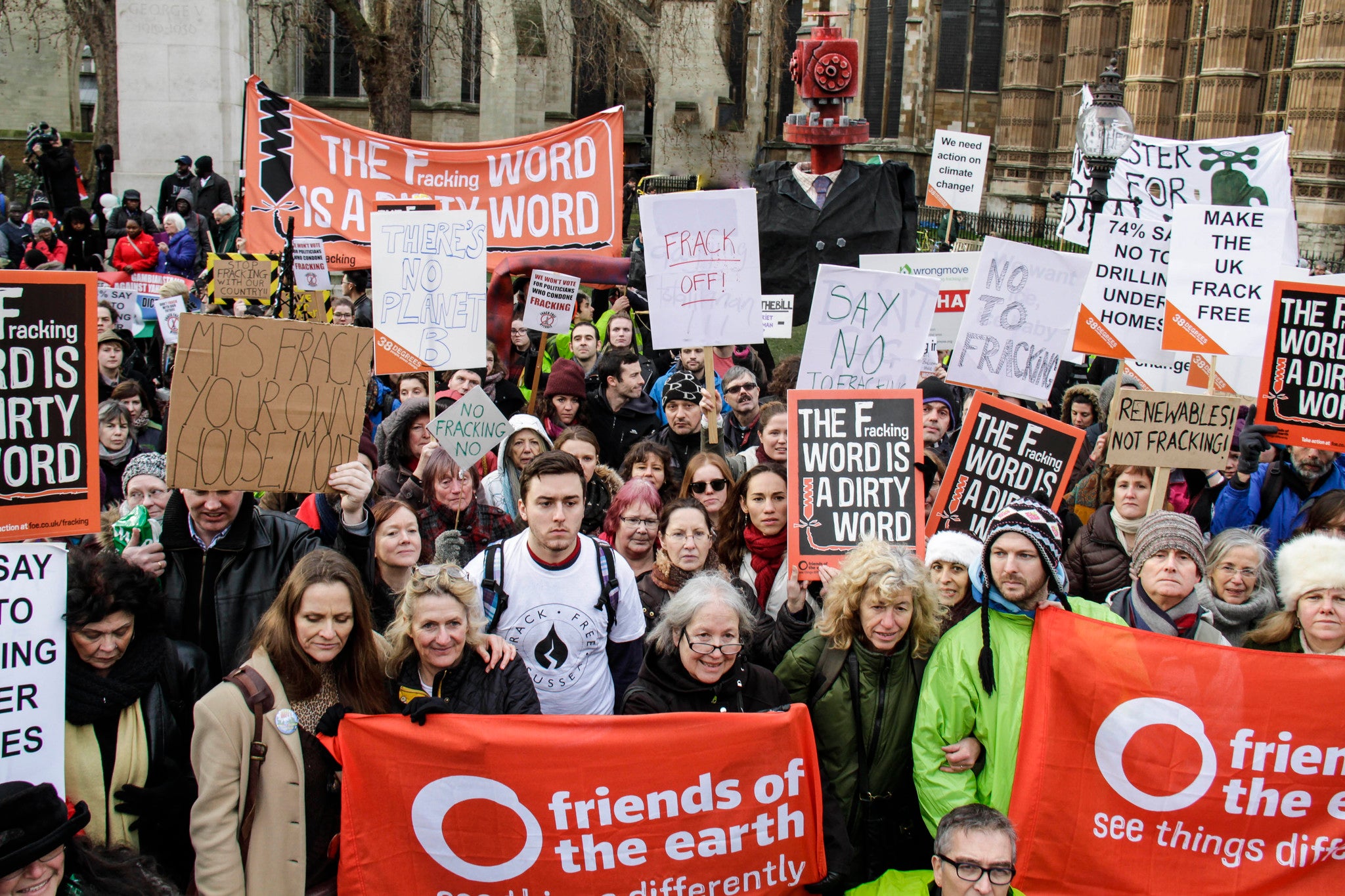10 things you need to know about fracking – the case against
What is it? And why should you care? Donna Hume from Friends of the Earth presents the arguments against

Fracking has barely been out of the news this week and every day brings further dissent to the controversial technique of breaking up shale rock from under our feet to release gas at high pressure with a cocktail of chemicals.
Public opposition and concerns about local impacts have meant there has been no fracking in Britain since a temporary ban was lifted in 2012. Today Scotland has announced a moratorium on fracking, while Lancashire Council - where proposals for fracking are at their most advanced – has delayed its decision on whether to allow fracking once again.
Meanwhile the fracking industry is facing mounting scientific evidence pointing to health, environment and climate concerns. In this crunch week for fracking, what are the top ten questions that need answering?
1. Is it true there are “Serious health concerns”?
Last month New York State banned fracking altogether after the Public Health Commissioner there found “serious health risks”. Breast Cancer UK has concerns about the potentially adverse health effects of increased exposure to harmful chemicals that may occur as a result of fracking. In Britain, the Public Health England report that gave fracking the green light was published before much of the evidence was available.
2. But it creates new jobs and boosts the economy, right?
Everyone agrees that Britain needs more long-term, skilled jobs. But despite early promises from the fracking industry of new manufacturing jobs in the tens of thousands, experience from one of the biggest shale fields in the US shows that job creation is limited to four jobs per well on average. Fracking company Cuadrilla has since admitted that the 6 year fracking project proposed in Lancashire would lead to just 11 jobs at each of the two sites, including those induced by the extra economic activity. A separate study has found that a programme of home insulation would create 10,000 jobs by 2020 in the North West alone.
3. Will it reduce bills?
Another early promise from fracking companies is that it would reduce our energy bills, a line that is now used less and less by the industry. However, Cuadrilla admitted that any impact on bills would be “basically insignificant” and claims from Breitling Energy, a US shale company that fracking would “lower energy bills for millions” in the UK were found to be “misleading” by the Advertising Standards Authority.
4. What's happened where fracking has taken place already?
Denton, Texas, is known as the "birthplace of fracking", where the community has been living side by side with the industry since the late 2000s. However, the town has now banned fracking following a referendum. In this solidly Republican town gas and oil companies reportedly spent $700,000 trying to defeat the ban. And still lost. Denton joins a long list of places with bans and moratoriums including Scotland, France, the Netherlands, and large parts of Canada and the US.

5. Will it pollute water?
Lord Smith, former Chair Environment Agency, has said “groundwater contamination is the biggest environmental risk in this activity”. Contamination of groundwater can occur from a fault in the production well, and surface water contamination could result from spillages associated with waste storage, handling and disposal. As a consequence, the Labour Party had proposed that fracking be banned in “groundwater source protection areas” that feed into aquifers used for drinking water. The Government had accepted this proposal in Monday’s fracking debate, but now appears to backpedalling by trying to instead rule out fracking in only part of the water protection zone.
6. Will it cause climate change?
The only way to stop climate change is to stop burning fossil fuels, not dig up more. Especially when we know only one fifth of the fossil fuels already discovered and owned can be burnt without causing runaway temperature rises and extreme weather. As former special envoy on climate change John Ashton has said: “You can be in favour of fracking, and you can be in favour of tackling climate change, but you can't be in favour of both.”
The Government was planning on announcing licenses for fracking companies in up to 60 per cent of Britain in the next few months. But just today the Scottish Government has announced its moratorium on fracking. While on Tuesday the First Minister of Wales tweeted that “we should consider a moratorium on fracking”. This would leave only England and Northern Ireland as the potential guinea pigs.
8. Isn’t it just hippies that oppose fracking?
Not so. Of the 200-plus anti-fracking groups that have sprung up over the past couple of years, very few are run by people that have never campaigned about anything before. Grandmothers Against Fracking are a case in point. A group of grandmothers, also known as the ‘Nanas’ have got together to oppose fracking in Lancashire, and recently occupied a proposed fracking site.
9. Why is the Government so keen for it to go ahead?
No one quite knows the answer to this. Fingers have been pointed at the influence of George Osborne’s father-in-law, Lord Howell, who has large interests in fracking. And, earlier this week, a crucial letter was leaked setting out Osborne’s plans to try to push fracking through even if local councils turn it down. David Cameron claims it will reduce dependence on foreign gas imports, but studies show that a similar focus on measures that reduce energy demand, like energy efficiency, could do the same thing with less disruption and pollution.
10. What do the public think?
Support for fracking is low and dropping. A new poll today shows support is at 25 per cent, while opposition continues to rise and now stands at 40 per cent. Most opposition to fracking is concentrated in areas where it is proposed. Only 10 per cent of people would be happy to see it in their area, while around two thirds of people would prefer to live next to a wind farm than a fracking site. If the Government does open up more of England and Wales to fracking, expect opposition to grow.
The future is not looking bright for the fracking industry. Lancashire’s decision today is likely just delaying the inevitable demise of the fracking dream. But with promises of jobs and lower bills already gone, and growing concerns over water contamination, health impacts, 24 hour drilling, flaring and traffic, it was looking more like a nightmare anyway. Perhaps soon Britain can get back to building a green economy that could deliver skilled jobs and lower bills, as well tackling the urgent threat from climate change.
Join our commenting forum
Join thought-provoking conversations, follow other Independent readers and see their replies
Comments
Bookmark popover
Removed from bookmarks